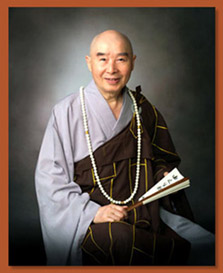Like the Lingering Scent of Wine
 March 5, 2009
March 5, 2009 In The Mind Heart Disconnect, I wrote:
A few days, I was listening to a translation of Master Chin Kung’s talk by one of my fellow nuns. Teacher was talking about a high level of bodhisattvas who no longer had any thoughts of selfishness, greed, anger, ignorance, or arrogance. But the habit of these afflictions is still there. So even these higher level bodhisattvas still have habits. They do not act on these habits or have thoughts that arise from them, but the traces of the habits still exist.
A few days ago, Teacher spoke again on this and used the example of a wine bottle.
These traces of habits, residual habits, are like the odor of wine remaining in the bottle even after it is washed out. It takes time to gradually eliminate that remaining odor. During this time after the wine is gone, the former trace of it still remains.
Just as a wine bottle that has been thoroughly washed and left open to the air will gradually lose even the last lingering scent of the wine, our residual habits that are not acted upon will linger and then, with time, even the traces will be gone. With all traces gone, the bottle will be completely clean, the mind perfectly pure.
 Habits
Habits 